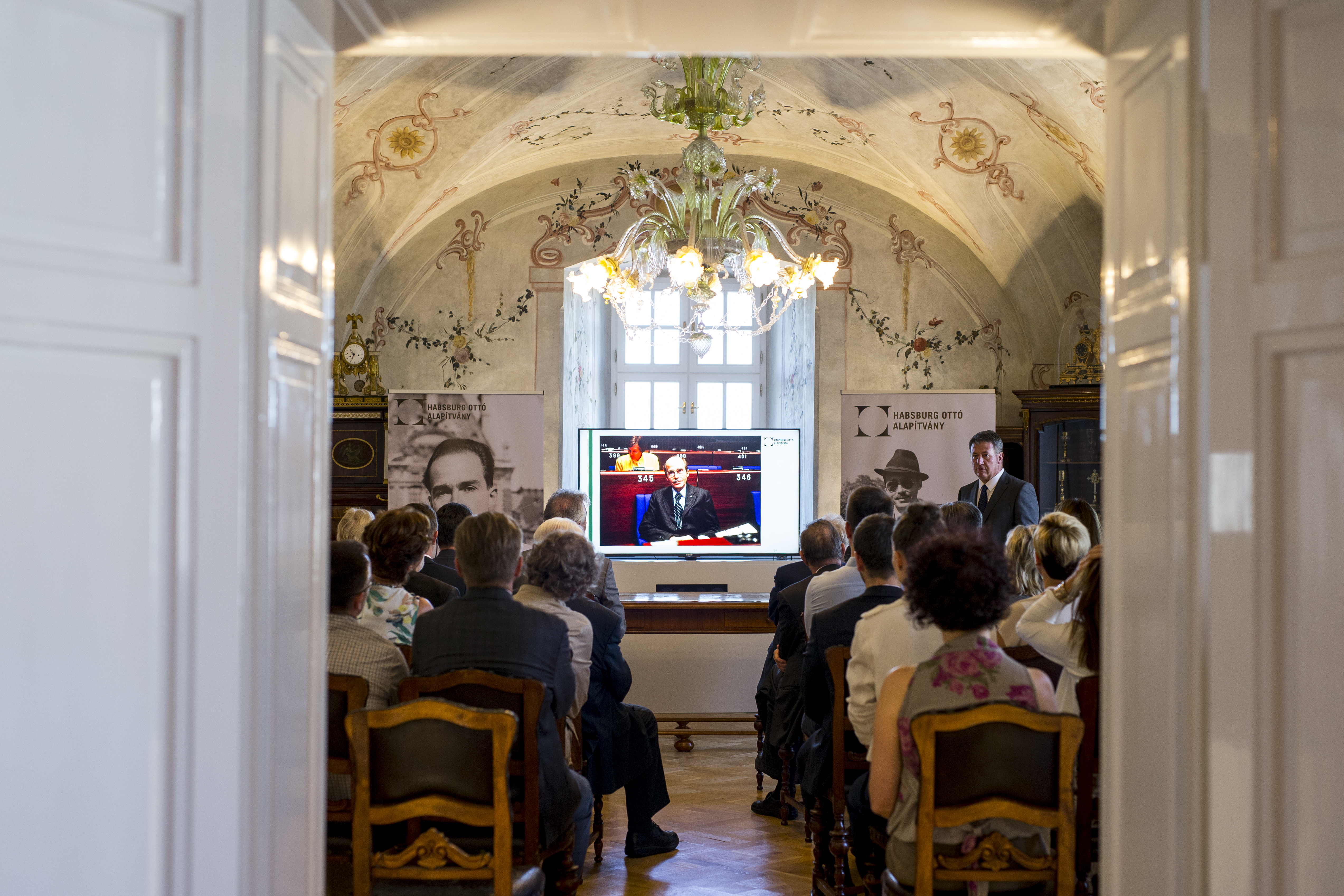Bishop Asztrik Várszegi former archabbot of Pannonhalma Archabbey spoke at the event and recalled that Hungarian Benedictine monks educated Otto von Habsburg abroad, and they taught him Hungarian. For example, Jákó Blazovich taught him patriotism, and the principle that he represented throughout his life: peoples are not enemies.
At the commemoration Chairman of the Board István Nagy described the objectives of the Otto von Habsburg Foundation founded in 2017. He said: the primary purpose is to preserve the tangible and intangible heritage of Otto von Habsburg in a dignified manner, arrange it into a single collection, and provide access to it. Moreover, to support the creation of a future-oriented European ideology based on the work of Otto von Habsburg.
The foundation’s mission is to present Otto von Habsburg as a statesman and politician who stood up for his Hungarian ethnicity, and to process and make accessible his lifework.
Deputy Prime Minister Zsolt Semjén emphasized that the Hungarian nation must not forget about Otto von Habsburg, that as politician of the Christian Social Union in Bavaria (CSU) he gave a speech in Hungarian in the European Parliament every year “through a lifetime”, indicating that Hungary would be in the European Union by its free will, where Saint Stephen’s heritage obliges it, from where “it was torn out by the Soviet occupation against its will”.
Gergely Prőhle, Director of Otto von Habsburg Foundation said that the aim is to add a further dimension to the image of the institution’s namesake: Otto von Habsburg was a cool statesman. He was not only a witness, but also an active participant of the 20th century, able to go beyond imperial thinking in spite of being the head of an ancient royal family. He was a supporter of national self-determination, and worked for Hungary’s independence in this spirit even during the Socialist period.
The collection includes Otto von Habsburg’s political articles published in different languages, his books published, book collection, studies based on his conversations with heads of state and important politicians, reports of his twenty years’ work in the European Parliament, articles, and his personal correspondence.
